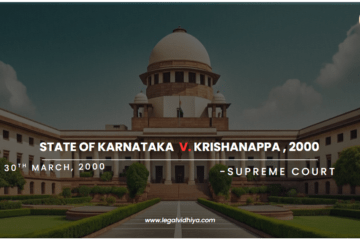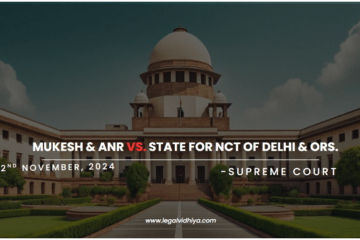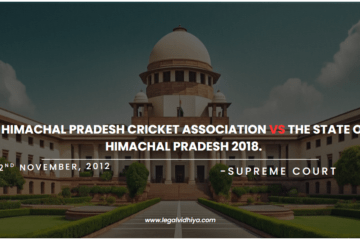
| Citation | AIR 1976 Bom 23 |
| Date of Judgement | 2nd December, 1974 |
| Court | Bombay High court |
| Case Type | Civil |
| Appellant | Hayatuddin |
| Respondent | Abdul Gain & Ors. |
| Bench | Chandurkar, J. |
| Referred | Muslim Personal Law |
FACTS OF THE CASE
The case centers around a home that belonged to Lalmiya, a man who had two wives, Rashidbi and Makboolbi when it was first built. The legal standing of Mahaboolbi, who also asserted to be Lalmiya’s wife, was in question. Lalmiya left behind the land in question when he passed away in 1948. The estate of Lalmiya was divided among his living relatives after his passing. One of the parties, Amnabi, received a 12 annas (or 3/4 of the property) stake. The other two wives of Lalmiya, Rashidbi, and Makboolbi received a portion of the property worth 2 annas (1/8th).
Amnabi executed a gift deed in favor of Hayatuddin, the plaintiff in this case (the document is known in the court as Ex. P-4). According to the gift deed, Amnabi and Rashidbi were giving Hayatuddin their dwelling property, which was worth Rs. 1000. The description of the assets included a statement that a portion of them had previously been divided and delivered to Makboolbi as her share of the estate. The gift deed also made it clear that the land belonged to the donee (Hayatuddin) and that he had the freedom to use it any way he pleased as the owner. The gift document further stipulated that after the gift, the givers (Amnabi and Rashidbi) would no longer have any ownership stake in the property.
Amnabi, Rashidbi, and Hayatuddin filed Civil Suit No. 227 of 1955 in order to get various reliefs. The main goal of the lawsuit was to have it determined that Hayatuddin was the rightful owner of the property according to the 1952 gift deed. They also wanted to divide the property into distinct possessions. Among the accused were Makboolbi and Mahaboolbi, who declared herself to be Lalmiya’s widow. Two renters who had actual possession of the property, Sk. Chhote and Mohd Gulab were also named as defendants in the lawsuit. The decision was made by the trial court on January 25, 1956. The plaintiffs (Amnabi, Rashidbi, and Hayatuddin) argued that there had been a partition in 1950, but the court determined that there had not been one. However, the court acknowledged that Hayatuddin had really received the gift. The court decided that Makboolbi, who owned a 2 anna part in the property, was not bound by the gift. The fact that Hayatuddin was not given custody of the assets stated in the gift deed was also discovered. Mahaboolbi’s claim that she was Lalmiya’s widow was disproved.
The trial court, as a result, issued a decree in favour of the plaintiffs and defendant No.1 (Makboolbi), allocating to each party their respective shares in the home and ordering its division into equal parcels, subject to the payment of defendant No.1’s proportionate share of the dower debt. Amnabi passed away on November 18, 1956, while Mahaboolbi’s appeal was pending. The present defendants (No 1 to 6) were added as her legal representatives in the appeal. Hayatuddin and Rashidbi initiated the current lawsuit after Mahaboolbi’s appeal was denied and a final decree for partition was adopted. They demanded a finding that Hayatuddin was the sole owner of the assets listed in the schedule as well as an injunction to safeguard his possession. The defendants argued that the gift was void and that the former ruling acted as res judicata and rejected Hayatuddin’s claim in the earlier lawsuit.
According to the split portion of the property, the trial court ruled that the gift deed was legitimate. It determined that the defendants were not entitled to possession and that the previous lawsuit’s judgment was not conclusive. A declaration and long-term injunction in favor of Hayatuddin were granted by the trial court. The lower appeal court ruled that the earlier ruling did serve as a precedent and that the gift was illegal because the property had not been divided prior to it. Hayatuddin filed an appeal with the Bombay High Court in response to this ruling.
ISSUE
The validity of a gift deed executed by Amnabi in favor of Hayatuddin for a share of the house property is the primary issue before the court. The question is whether the gift deed was legally binding and if Hayatuddin had a legitimate claim to the land as a result of the gift.
ARGUMENTS
The petitioner stated that the gift deed Amnabi and Rashidbi signed in his favor was legitimate and binding on the law. He argued that the donation complied with the law and that the donors’ intentions to give him the land were obvious. He asserted that he had owned the assets listed in the gift deed ever since the gift was made. He maintained that he was the legal owner and possessor of the property and that the possession had been given to him as stated in the deed. Additionally, The Petitioner stated that there had been a division, dividing the property indicated in the gift deed from the share of the other co-owners, notably Makboolbi. He also argued that the decision in the earlier case (Civil Suit No. 227 of 1955) did not definitively decide whether the gift deed was genuine and that the matter should not be regarded as settled in the present case.
Because the gift deed was made in connection to an undivided share of the property, the defendants argued that it was invalid. They claimed that because the property had not yet been divided when the gift was made, it did not adhere to the legal requirements for a legitimate gift. The defendants claimed that the validity of the gift had previously been decided upon and that the decision in the earlier litigation (Civil Suit No. 227 of 1955) should be regarded as res judicata. They asserted that the court had already decided that the gift was illegal. The assertion that Hayatuddin had been given possession of the assets stated in the gift deed was disputed by the defendants. They claimed that the delivery of possession, which is required for a gift of movable goods to be lawful, had not occurred. The defendants further maintained that the validity of the gift had already been decided in the earlier action, which meant there was no conflict of interest between the plaintiffs in that case.
The plaintiff asserted the legality of the gift deed, while the defendants contended that it was unlawful due to the property’s undivided nature and that the matter had already been resolved in another lawsuit. The major question in the case was whether the gift deed was valid. The legitimacy of the gift was also disputed primarily based on possession and delivery of possession.
JUDGEMENT
The plaintiff, Hayatuddin, was awarded a favorable judgment by the court. The court ruled that Amnabi and Rashidbi’s gift deed in favor of Hayatuddin was lawful and binding on the law. The court determined that Hayatuddin had received possession of the property in accordance with the gift deed’s conditions. The court dismissed the defendants’ claims that the gift was illegal since the land was undivided and that the matter had already been resolved in prior litigation (Civil Suit No. 227 of 1955). The court determined that the plaintiffs in the earlier complaint did not have any competing interests and that the validity of the gift had not been conclusively determined.
The court also stated that there was enough proof to demonstrate that the donors (Amnabi and Rashidbi) had acted to relinquish control of the property and give it to Hayatuddin. This includes the notices that the donors sent to the tenants and their actions in joining Hayatuddin as a co-plaintiff so that their portion might be divided and given to Hayatuddin. As a result, the court accepted the plaintiff’s appeal, overturned the decisions of the lower appellate court, and reinstated the trial court’s ruling. As a result, the defendants were permanently prohibited from interfering with the plaintiff’s possession and enjoyment of the suit dwelling. This plaintiff was identified as Hayatuddin. The appellant’s case was upheld with costs.
REFERENCES
This Article is written by G Parinitha of St. Joseph’s College of Law, Intern at Legal Vidhya




0 Comments